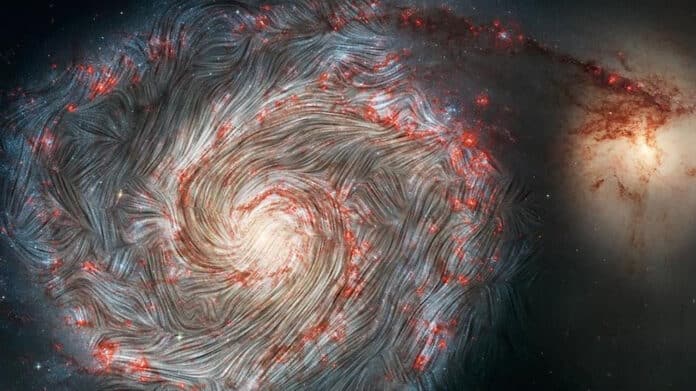The mechanisms that generate “seed” magnetic fields in our Universe and amplify them throughout cosmic time remain poorly understood. A new study by Columbia University offers insight into the source of these fields by using fully kinetic particle-in-cell simulations of turbulent, initially unmagnetized plasmas.
The team used models to show that magnetic fields may spontaneously arise in turbulent plasma. Despite being a matter usually found in ultra-hot environemnets, plasma is also scattered throughout the universe in low-density environments.
This study mainly focused on those low-density environments. In addition to creating new magnetic fields, their simulations revealed that the turbulence of those plasmas can also amplify magnetic fields after they have already been created. This helps to explain how magnetic fields that begin on small scales can occasionally eventually reach to stretch across vast distances.
Astronomy professor Lorenzo Sironi said, “This new research allows us to imagine the kinds of spaces where magnetic fields are born: even in the most pristine, vast, and remote spaces of our universe, roiling plasma particles in turbulent motion can spontaneously give birth to new magnetic fields.”
“The search for the ‘seed’ that can sow a new magnetic field has been long, and we’re excited to bring new evidence of that original source, as well as data on how a magnetic field, once born, can grow.”
Journal Reference:
- Lorenzo Sironi, Luca Comisso, and Ryan Golant. Generation of Near-Equipartition Magnetic Fields in Turbulent Collisionless Plasmas. Physical Review Letters. DOI: 10.1103/PhysRevLett.131.055201
